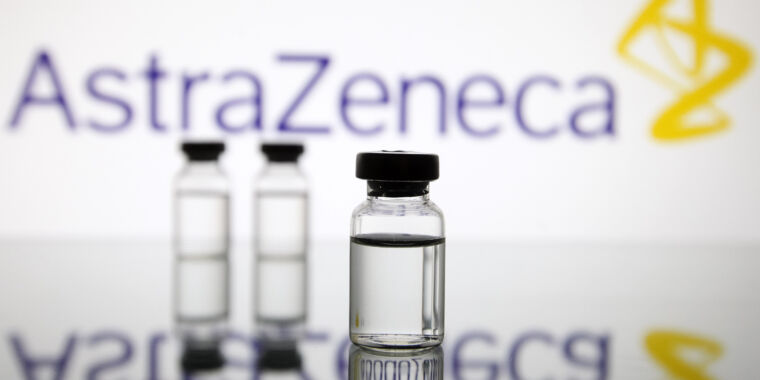
Gloomy preliminary data on AstraZeneca’s COVID-19 vaccine in South Africa – where the coronavirus B.1.351 / 501Y.V2 variant is spreading widely – led the government there to rethink its vaccination implementation and increased international concern about the variant.
But the small study has so many limitations and caveats that experts warn that it is difficult to draw any conclusions from it.
The study, which was not published or peer-reviewed, but presented at a news conference on Sunday, began in June and involved only about 2,000 participants, about half of whom received a placebo. At the beginning of the study – before the appearance of B.1.351 – the vaccine seemed more than 70 percent effective in preventing mild to moderate cases of COVID-19. This is largely in line with the conclusion of an international Phase III trial launched by AstraZeneca and the co-developer of the Oxford University vaccine, which showed mixed results for the replication-deficient adenovirus-based vaccine, but an overall effectiveness of about 70%.
But at the end of the year – when the cases of B.1.351 started to take off – South African results changed dramatically. The overall effectiveness of the vaccine dropped to just 22 percent against mild to moderate COVID-19. In an analysis comparing effectiveness only in cases known to be due to B.1.351, the vaccine fared even worse, showing an abysmal efficacy of only 10 percent.
At first glance, these figures are surprising and suggest that variant B.1.351 has made the vaccine otherwise effective, almost useless. But, looking more closely, these numbers are almost uninterpretable. The test was too small to produce statistically sound results. Thus, each effectiveness calculation has large confidence intervals. For example, the vaccine’s final effectiveness of 22 percent – based on a total of 42 coronavirus infections in the trial – had a plausible estimate of a range between -50 percent of effectiveness and 60 percent of effectiveness.
Persistent questions
The study was also not designed to answer the critical question of whether the vaccine can prevent serious illness, hospitalization and death. The people enrolled in the study were relatively young – average age 31 – with very low rates of underlying diseases. Both factors make people much less likely to develop severe COVID-19 and die from the disease.
Experts emphasize that preventing serious illness and death is the most important goal of vaccines – not preventing transmission or minor illnesses. Last month, Johnson & Johnson announced that its vaccine – which is an adenovirus-based vaccine, like that of AstraZeneca – was only 57% effective against moderate and severe COVID-19 in South Africa. But experts applauded the discovery of that it was 85% effective in preventing serious illness and death. And the company reported that no one vaccinated in its Phase III trial ended up hospitalized or dying of the disease. Many experts have defended the vaccine not yet authorized as a potential new tool to end the pandemic.
The critical question that now arises is whether the AstraZeneca vaccine will equally protect against serious illness and death in cases involving B.1.351, which has now been detected in more than 30 countries. Given the uncertainty, researchers and officials from South Africa said on Sunday that they would, for now, interrupt the launch of the AstraZeneca vaccine, which was authorized for use in the European Union on 29 January. (It has not yet been submitted to the US Food and Drug Administration for authorization.) South Africa had recently started offering it to healthcare professionals. Instead, authorities are now looking into the possibility of phased implementation, which may involve vaccinating just 100,000 people and monitoring it for some time to check hospitalization rates. If the vaccine seems effective at that point, they will distribute it even more.
“Simply put, we don’t want to end a situation where we vaccinate one million people or two million people with a vaccine that may not be effective in preventing hospitalization and serious illnesses,” Salim Abdool Karim, co-chair of the Ministerial Advisory Committee for Africa South on COVID-19, said at a press conference on Monday.
